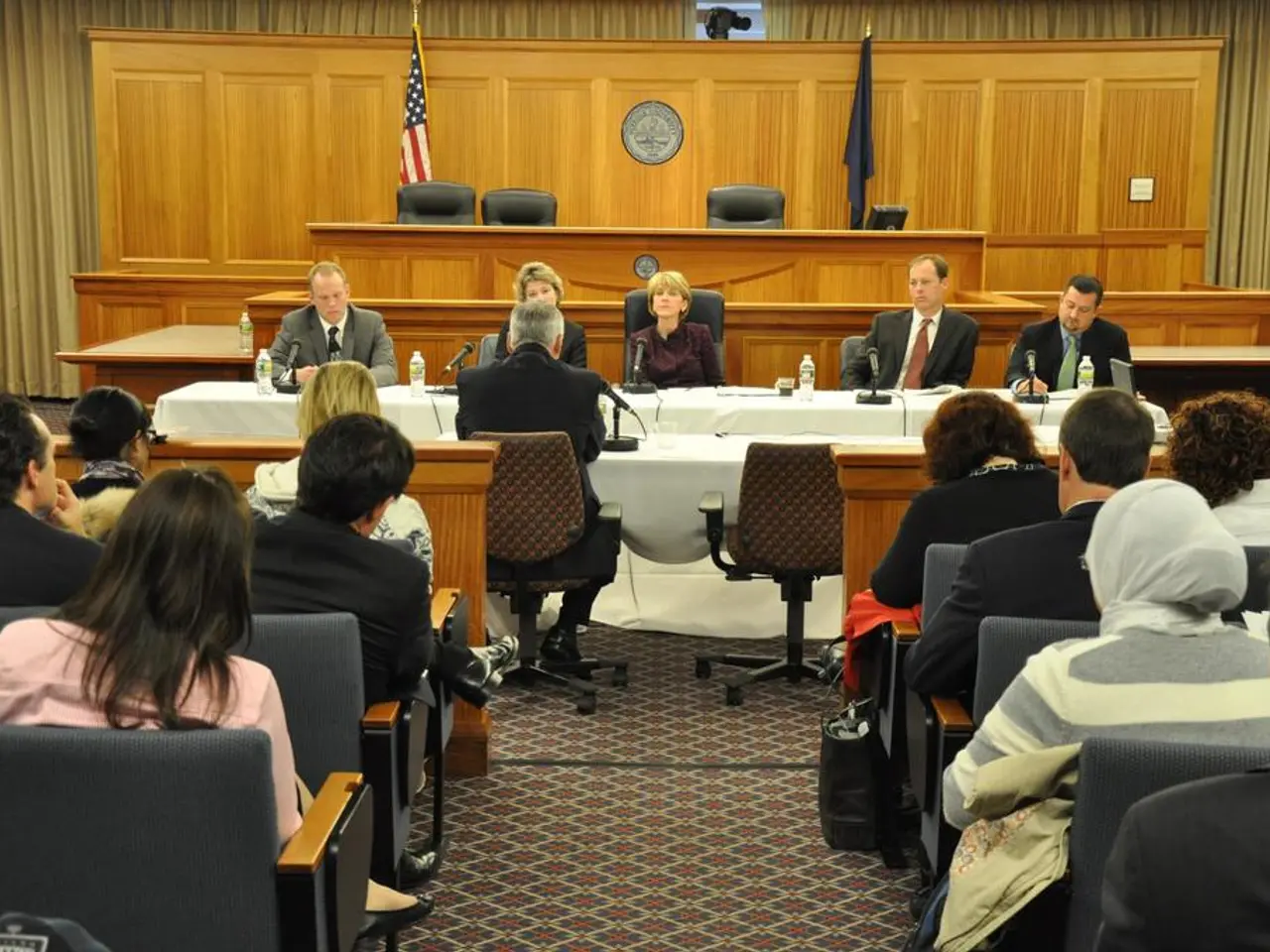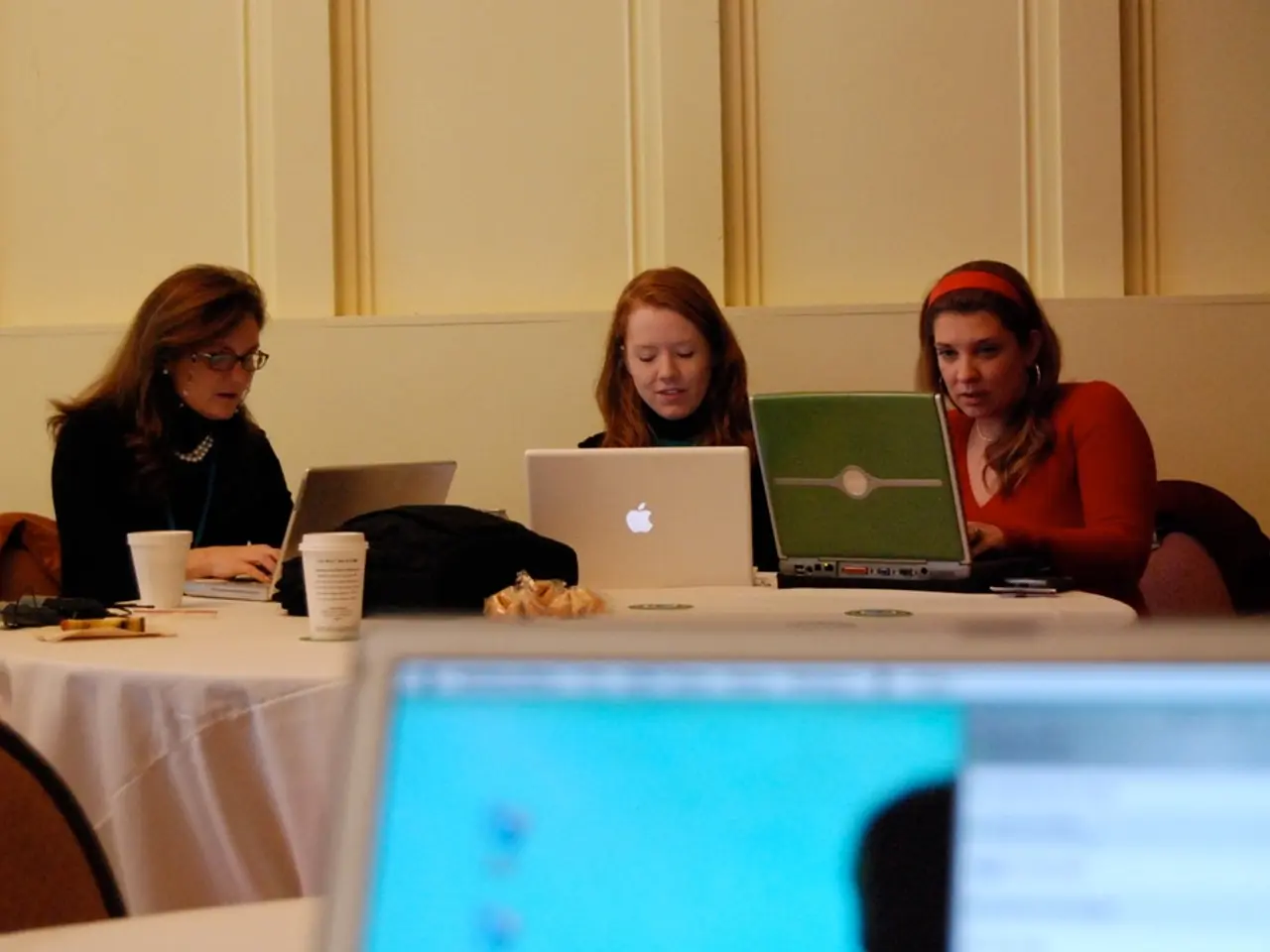Workforce Shifting Focus: Key Work Practices Evolving Globally
Cracking the Work Code:
Revamping the Work-Life Balance.
Across the globe, people are questioning their work commitments and redefining what truly matters in life. Hordes of workers have started to reassess their livelihoods, family time, and overall well-being.
In the United States, the era of mass resignations has reached unprecedented heights, with millions of professionals quitting their jobs: a staggering 24 million between April and September 2021 [1]. Meanwhile, other nations like Germany and Japan are witnessing a similar trend, even in distant regions like China. Take, for instance, the "Lie Flat" movement, sparked by a social media post, which advocates against the grueling '996' work schedule - 9 a.m. to 9 p.m., six days a week [2].
This phenomenon, known as The Great Resignation, has been brewing for years in developed countries. Sluggish wage growth, diminishing job security, and crippling expenses for housing and education have made it increasingly challenging for young workers to establish financial stability. Unsurprisingly, nearly half of the world's employees are now contemplating quitting their jobs [3]. Head to Bloomberg for more on this topic.
Mind the Gap: Emerging Trends and Factors
The Great Resignation and the "Lie Flat" movement are interrelated, reflecting a broader cultural shift. Rooted in the pandemic, these movements have accelerated the momentum for change, propelling workers to seek flexibility, purpose, and a higher quality of life.
- The Pandemic Catalyst: The pandemic drastically disrupted traditional work patterns, causing workers to reflect on their priorities. As a result, employees began devaluing the conventional office grind and placed a higher emphasis on health, flexibility, and work-life balance [5].
- Redefined Employee Expectations: Beyond the pandemic, emerging workforce demographics and the rise of the gig economy have escalated employee demands. Workers no longer accept prioritizing income and job security over autonomy, flexibility, and personal fulfillment [5].
- Mental Health Concerns: Increased workloads during the pandemic and the blurring of the lines between work and home life have led to widespread burnout. Employees are quitting in search of better work-life balance and mental health, ultimately fueling the Great Resignation [5].
- Labor Market Dynamics: The labor market has experienced a series of disruptions due to the Great Resignation. In 2021 alone, 47.8 million Americans quit their jobs [4]. Although quit rates have slightly declined since their peak, the ongoing reassessment of employment conditions persists.
Study up on the interconnected forces that have set the Great Resignation in motion, keeping you informed and ahead of the curve.
Takeaways for Life and Work
The Great Resignation and the "Lie Flat" movement illuminate a profound shift in the global work landscape. Workers are embracing their power to prioritize their health, families, and personal growth over the relentless pursuit of wealth and status [4].
As we navigate this new landscape, it's crucial to remain open to evolving expectations and adapt accordingly. Employers must reconsider their approaches, providing resources that empower employees to achieve fulfillment and maintain a sustainable work-life balance.
Sources:[1] Bloomberg (2021)[2] Forbes (2021)[3] Gallup (2022)[4] The Guardian (2021)[5] Harvard Business Review (2022)
- In the midst of redefining priorities, many professionals are aligning their careers with finance, seeking employment that offers a balance between maintaining financial stability and enjoying a better work-life balance.
- The Great Resignation, coupled with movements like "Lie Flat," signals a significant shift in the business world, encouraging employers to provide greater flexibility and focus on employee well-being, as people prioritize their personal lives and mental health over traditional notions of success and career progression.







